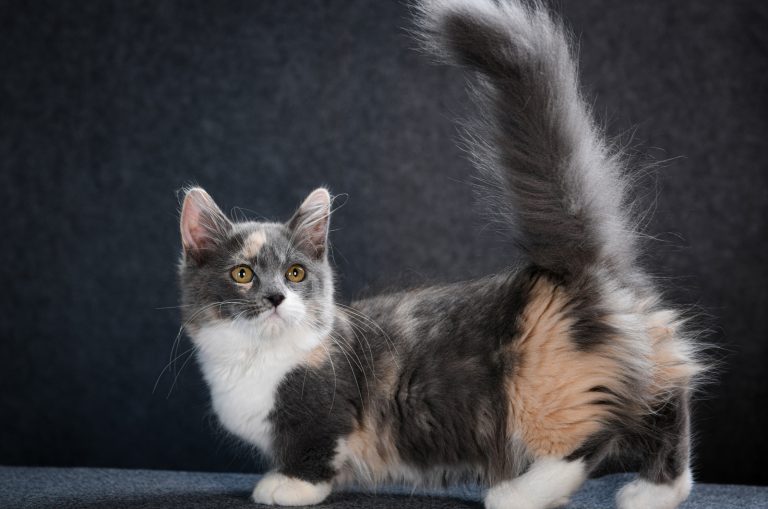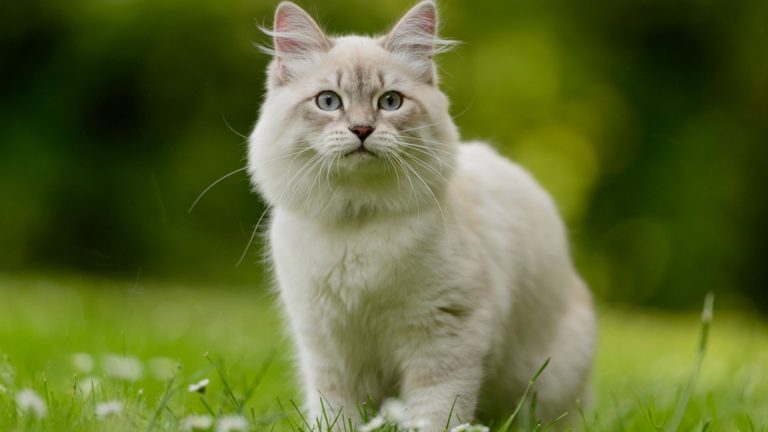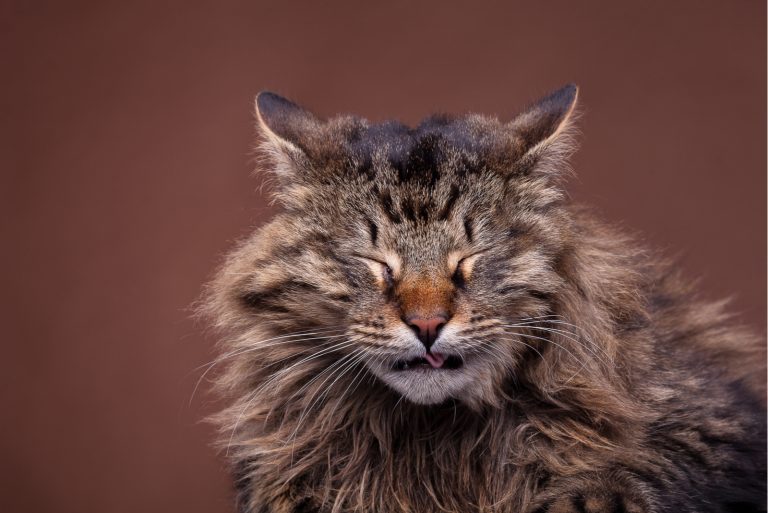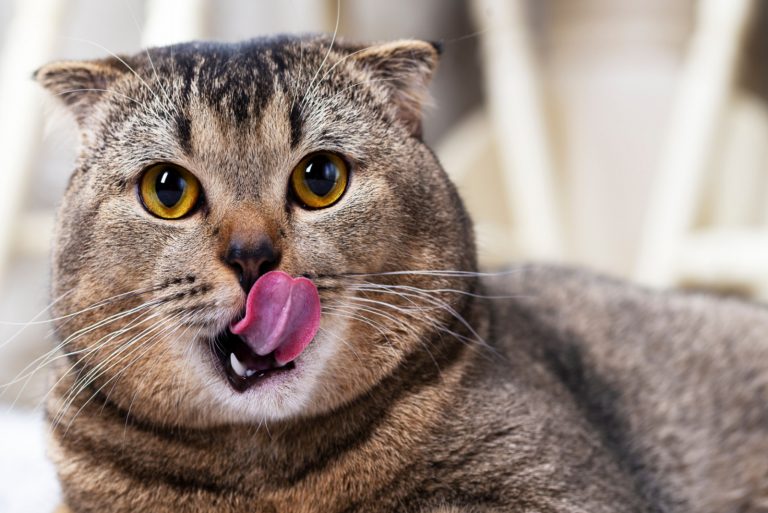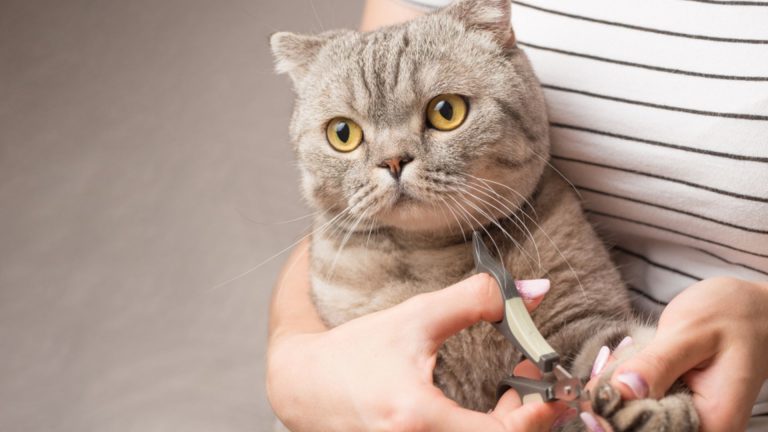The Benefits Of Valerian Root For Feline Stress and Anxiety
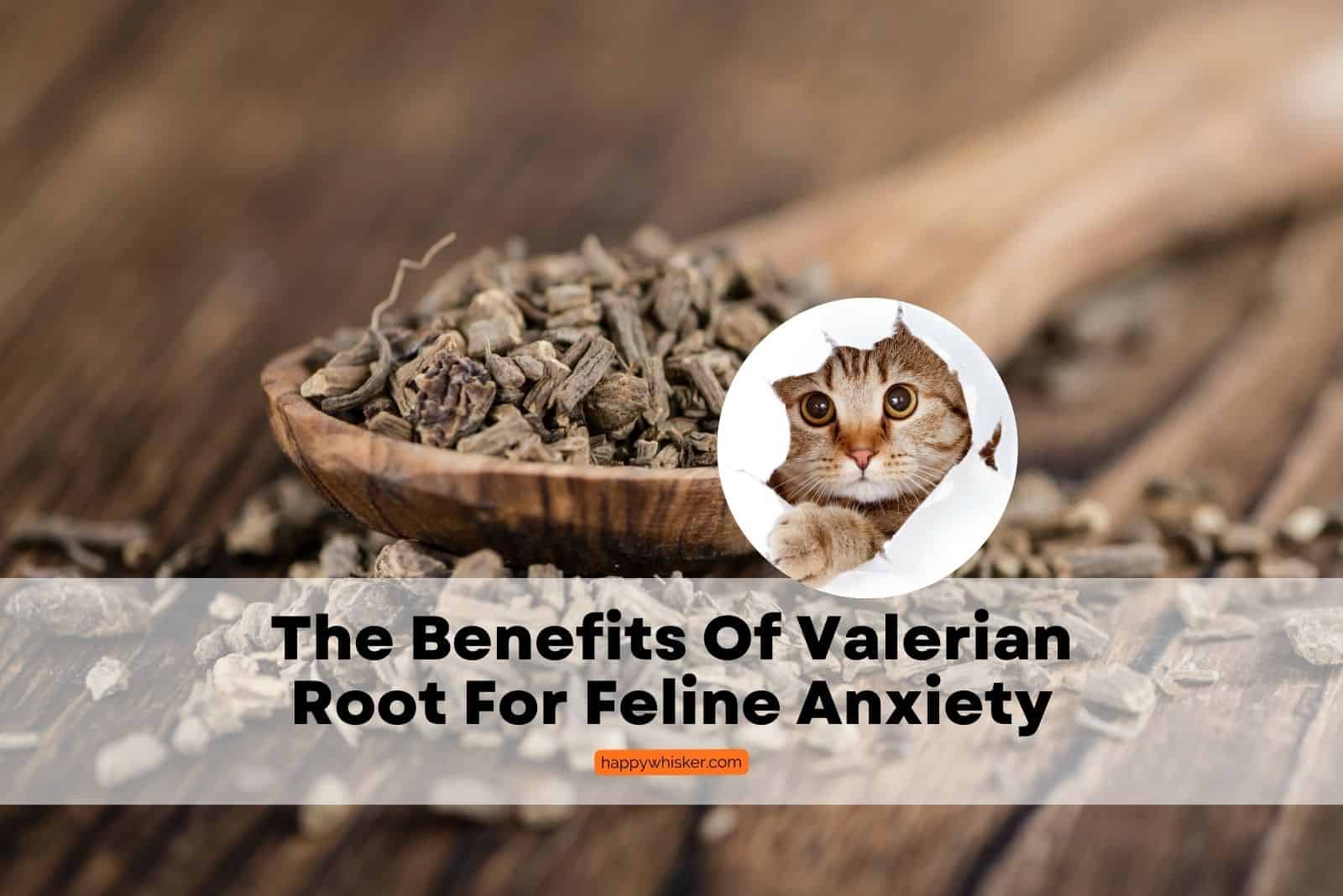
When it comes to keeping our beloved cats healthy and happy, finding ways to reduce stress and anxiety can be a challenge.
Valerian root is a well-known natural remedy for stress and anxiety in humans, but did you know it can also be beneficial for our feline friends?
This herbal remedy has been used for centuries to treat a variety of human health issues, and it is now gaining popularity as a way to reduce stress and anxiety in cats.
In this article, we’ll explore the benefits of valerian root for feline stress and anxiety, how to give it to your cat safely, and much more, so make sure to read on!
A Brief Introduction To Feline Stress And Anxiety
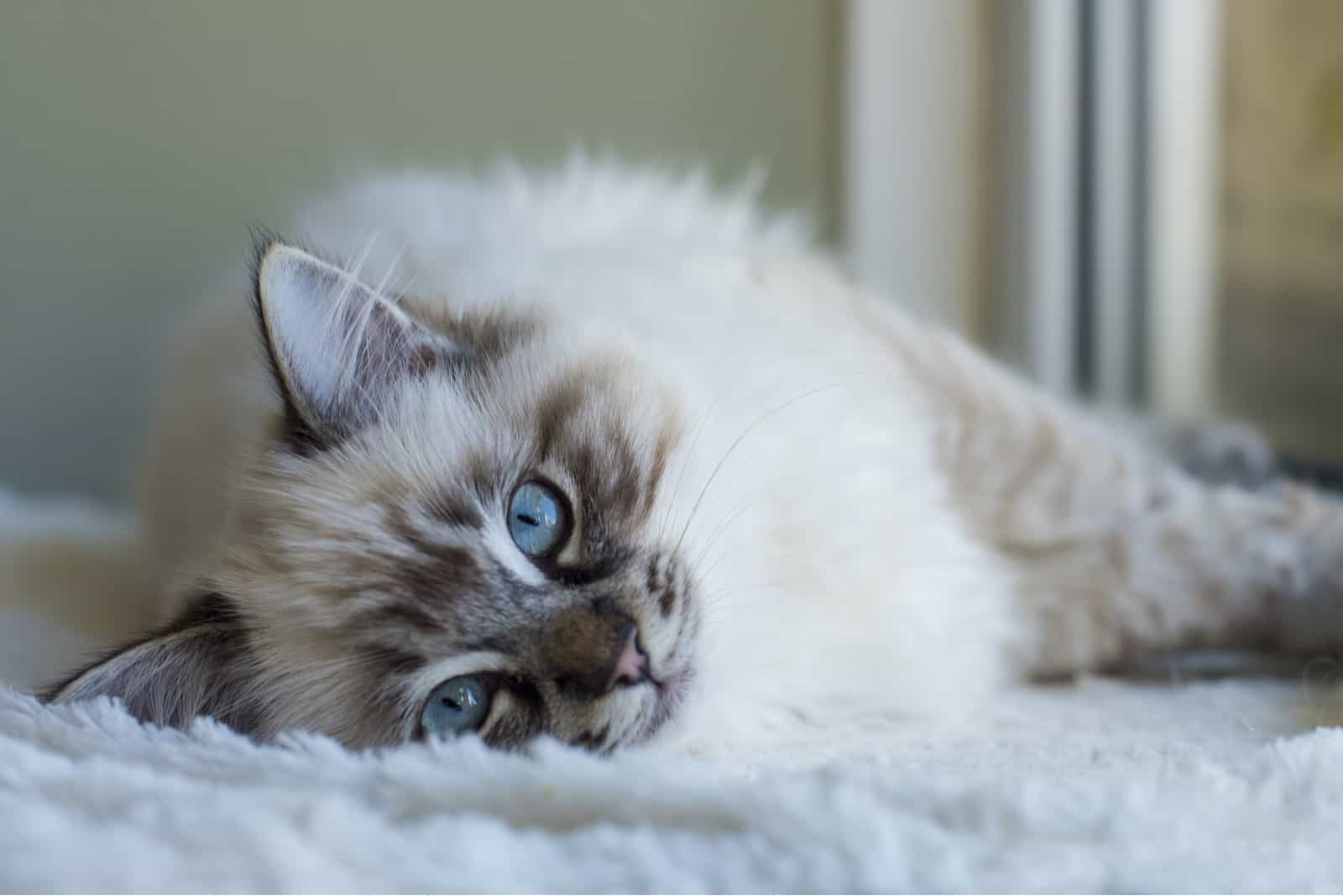
Feline stress and anxiety are common behavioral issues in our indoor cats (although outdoor and roaming cats can experience it).
Signs of stress and anxiety in cats can include:
• excessive vocalization
• hiding
• pacing
• over-grooming
• tail biting
• inactivity
• urinating or defecating outside the litter box,
• destructive behavior
A 2022 study about dealing with stress in cats notes that common triggers of stress in cats are:
• bathing
• hospital visits
• confinement
• novel environment
• social conflict
• blocked access to the litter box
• changes related to litter
• social conflicts
• high housing density
• frustration from limited outdoor access
• and many others
Importance Of Managing Feline Stress And Anxiety
Long-term stress and anxiety can increase the likelihood of sickness and disease in affected cats. Aside from physical health issues, stress and anxiety may have a big influence on a cat’s mental well-being.
Therefore, managing feline stress and anxiety is critical for our cat’s general well-being and quality of life.
One way to help reduce feline anxiety is by providing enrichment activities for cats, such as cat trees, scratching posts, and interactive toys. These items provide cats with physical and mental stimulation, which is an important step in reducing stress and anxiety in cats.
Additionally, providing a comfortable cat bed in a quiet area of the house can also be beneficial, as well as high-quality cat food (never forget the importance of a proper diet!).
Much research has shown that the use of synthetic feline facial pheromones is very effective in reducing anxiety in cats. Apart from what I’ve mentioned, you can also try helping a cat relax using herbs, such as valerian root!
What Is Valerian Root?
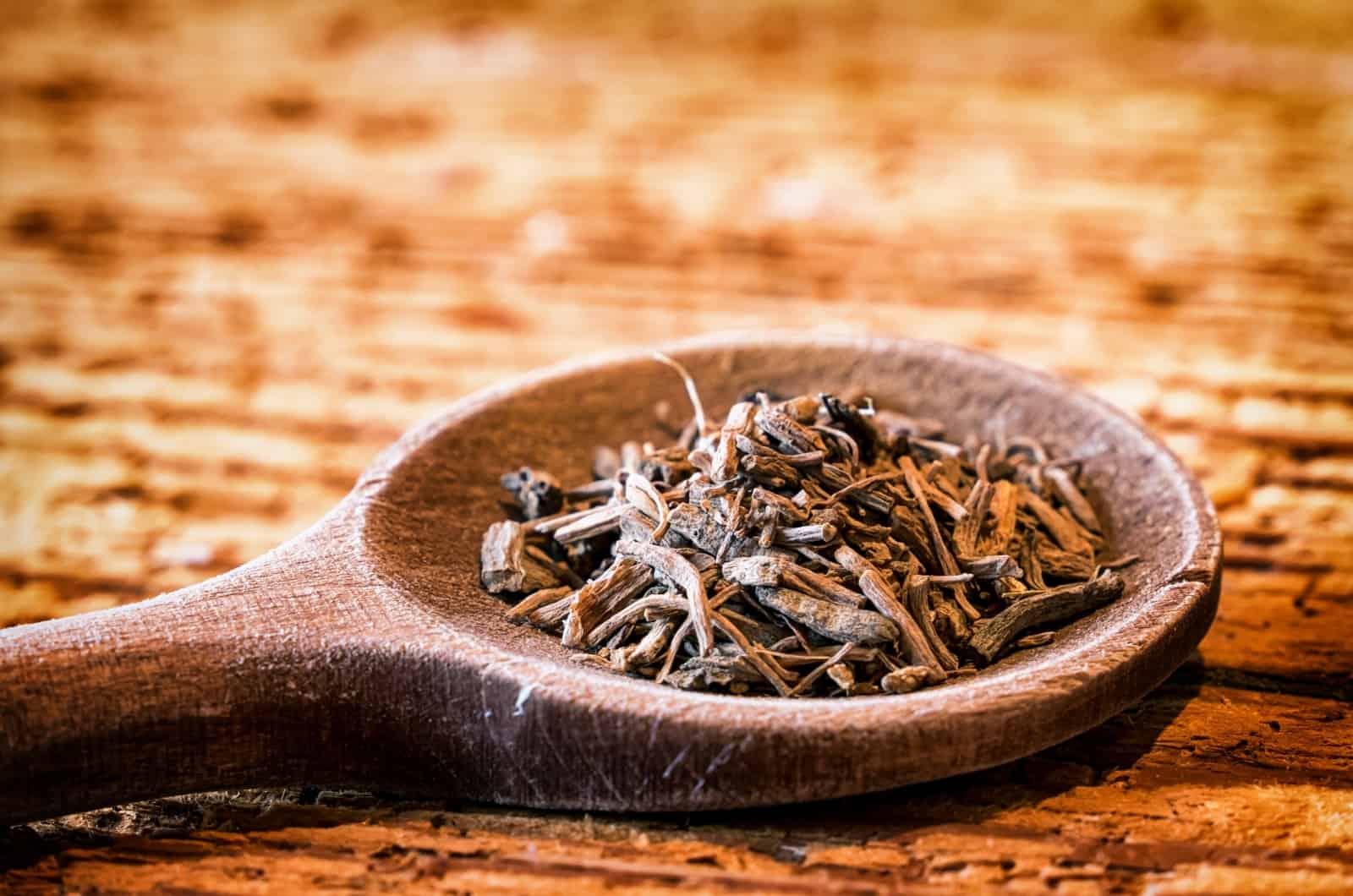
A well-known herb and medicinal plant, valerian (Valeriana officinalis), has been used extensively around the world, particularly in Europe, China, and the Middle East.
Valerian is characterized by small white or pink blooms in huge, dense clusters. Valerian plants have a strong, unique, and occasionally unpleasant odor.
In many parts of the world, it is frequently used by humans as a sedative and sleep aid, but also for gastrointestinal and abdominal pain. In Europe, valerian root has long been used as a sedative medication!
Please note that valerian and valerian root refer to the same plant, Valeriana officinalis, don’t be confused by this! It’s just that the part of valerian most commonly used in medicine is the root.
How Do Cats React To Valerian Root?
Many cats (although not all cats) react positively to valerian root. Most of the time, valerian root has mild sedative effects on cats, such as making them more relaxed.
In addition to being more at ease, cats under the influence of valerian root exhibit comparable behaviors to those frequently seen in cats on catnip, such as rolling, chin and cheek stroking, meowing, pouncing, drooling, licking, and purring!
However, most cat owners say cats under the influence of catnip show more hyperactivity-related behaviors, while cats under the effect of valerian root don’t show high levels of excitement, but rather relaxation.
Do All Cats Have The Same Reaction To Valerian Root?
Because every cat is unique and may have a distinct sensitivity to the herb, cats may react to valerian root in various ways.
While some cats may respond strongly to valerian root and find it to be calming, others may not react at all.
Benefits Of Valerian Root For Cats
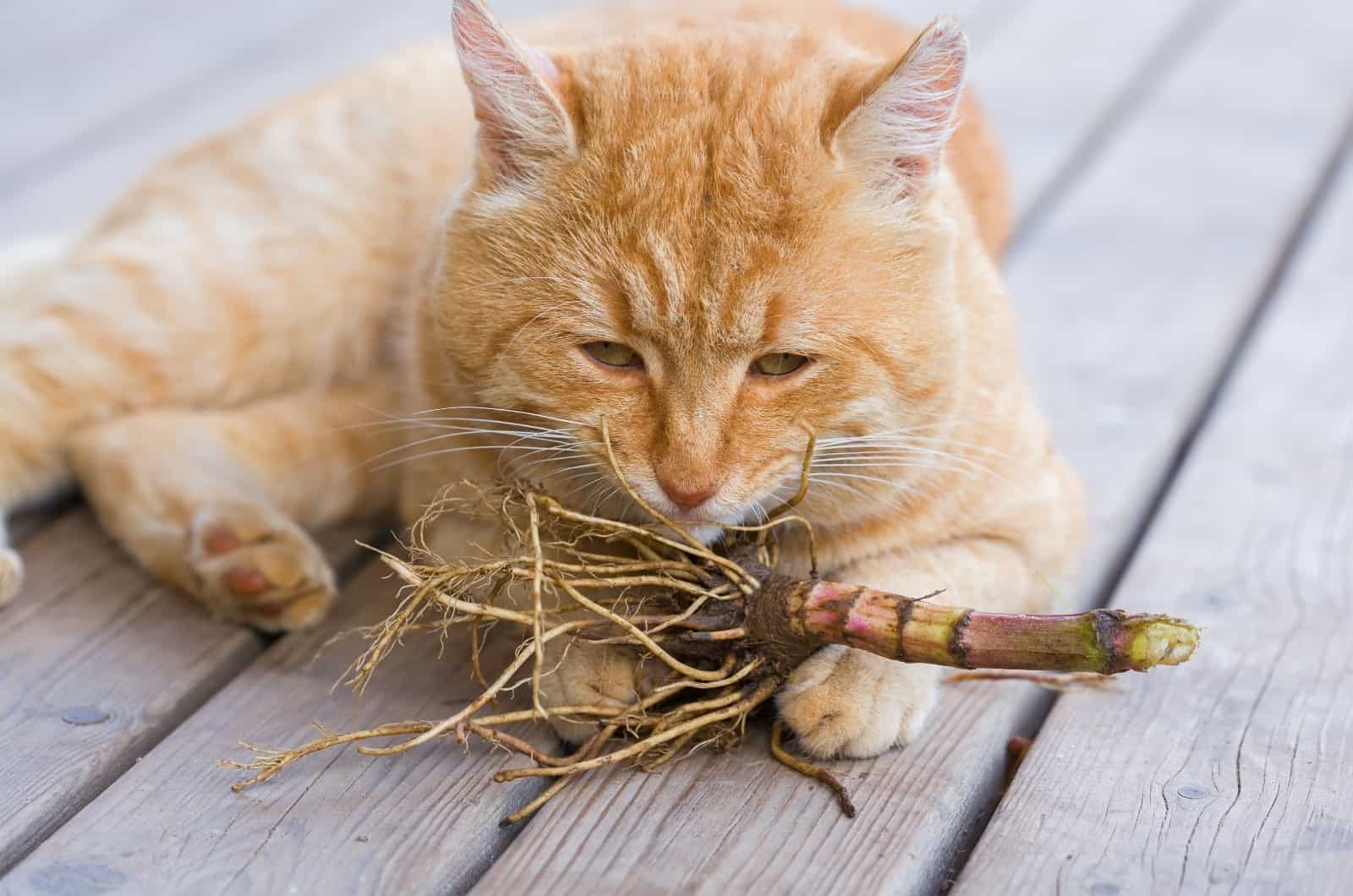
When taken correctly, Valerian root can provide a variety of possible benefits for cats, most notably sedation. Sedation is caused by molecules that have affinity for the GABA receptor, which is a protein receptor in the brain responsible for the feeling of calmness and relaxation.
A 2013 review article about nutritional and medicinal properties of valerian notes that : “Valerian extracts and some of its constituents, mainly valerenic acid, appear to have some affinity for the GABAA receptor, but the exact mechanism of action is not clear.”
Nevertheless, the benefits are definitely there, such as:
1. Calming And Relaxing Effects
The components in valerian root have a relaxing impact on the nervous system, which can help ease cats’ anxiety and encourage relaxation.
Cats who are prone to anxiety and stress-related behaviors, such as urine marking, excessive grooming, or hiding, often benefit from valerian root exposure.
2. Increased Playfulness
For cats who are less energetic or less interested in play owing to anxiety or other underlying concerns, valerian root can also assist to boost playfulness and activity levels!
Increased playfulness is a great sign that a cat’s stress and anxiety levels have decreased.
3. Reduced Aggressiveness
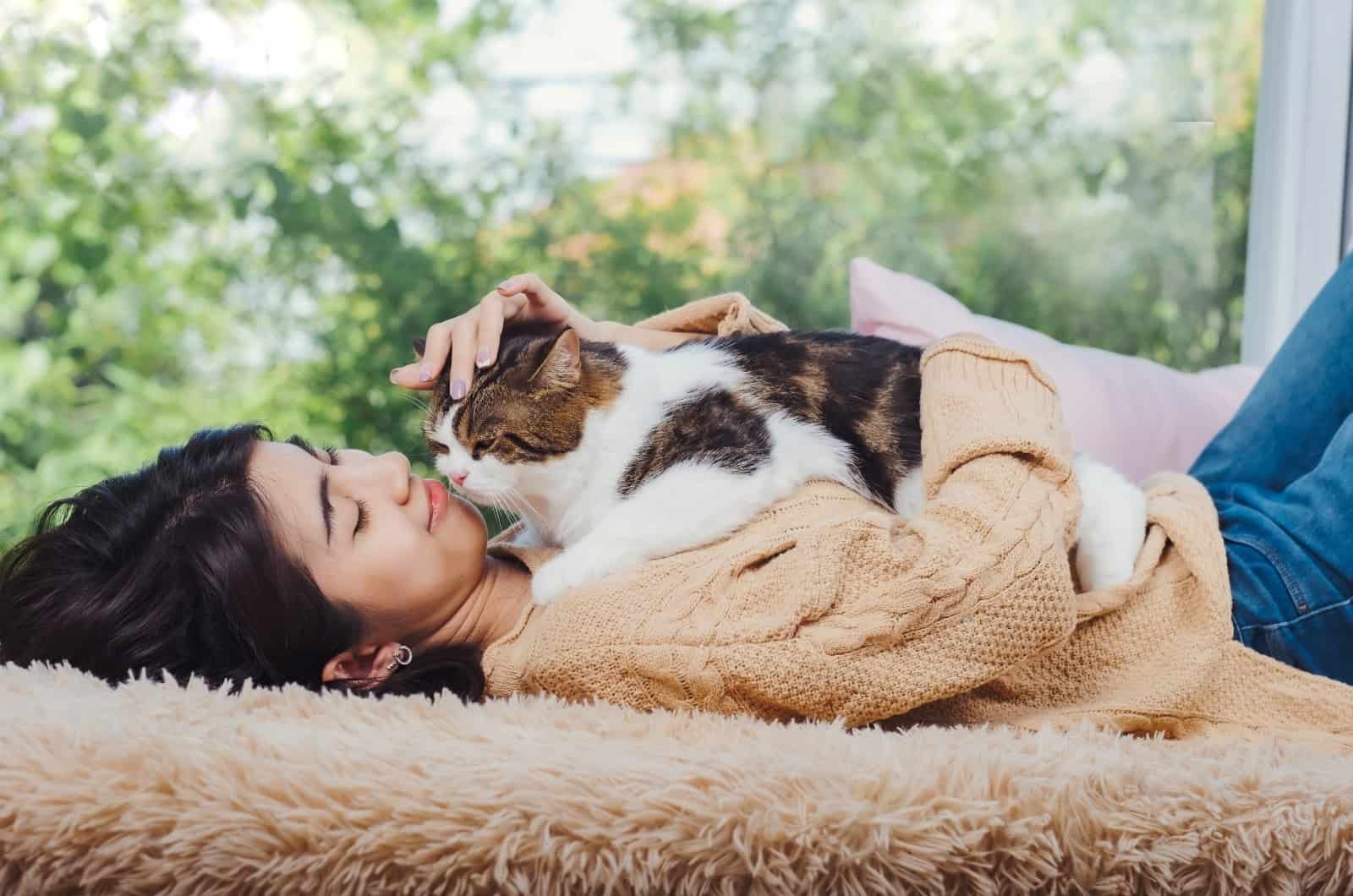
By lowering anxiety and encouraging relaxation, valerian root may aid in decreasing aggressive behavior in cats.
This may be advantageous for cats who are prone to biting, scratching, or other forms of aggression as well as cats that are territorial by nature.
This is especially important in multi-cat homes, as aggressiveness tends to lead to conflict; so decreased aggressiveness is something multi-cat-home owners want.
4. Improved Sleep
Stress has a negative impact on overall health, including sleep.
It is believed that cats that use valerian root sleep better and fall asleep more quickly, which benefits their general health.
Therefore, cats that have trouble falling asleep or have insomnia can benefit from valerian root.
5. Improved Appetite
Stress in cats can have an effect on their appetite, resulting in decreased food intake.
Valerian root can increase appetite by lowering stress and anxiety in cats who may have diminished appetites!
6. Reduced Stress-Related Behavior
The negative effects of stress and anxiety may be reduced in cats by using valerian root.
Cats who display stress-related behaviors like urine marking, excessive grooming, or hiding may benefit from exposure to valerian root.
Studies On The Effect Of Valerian Root On Cats
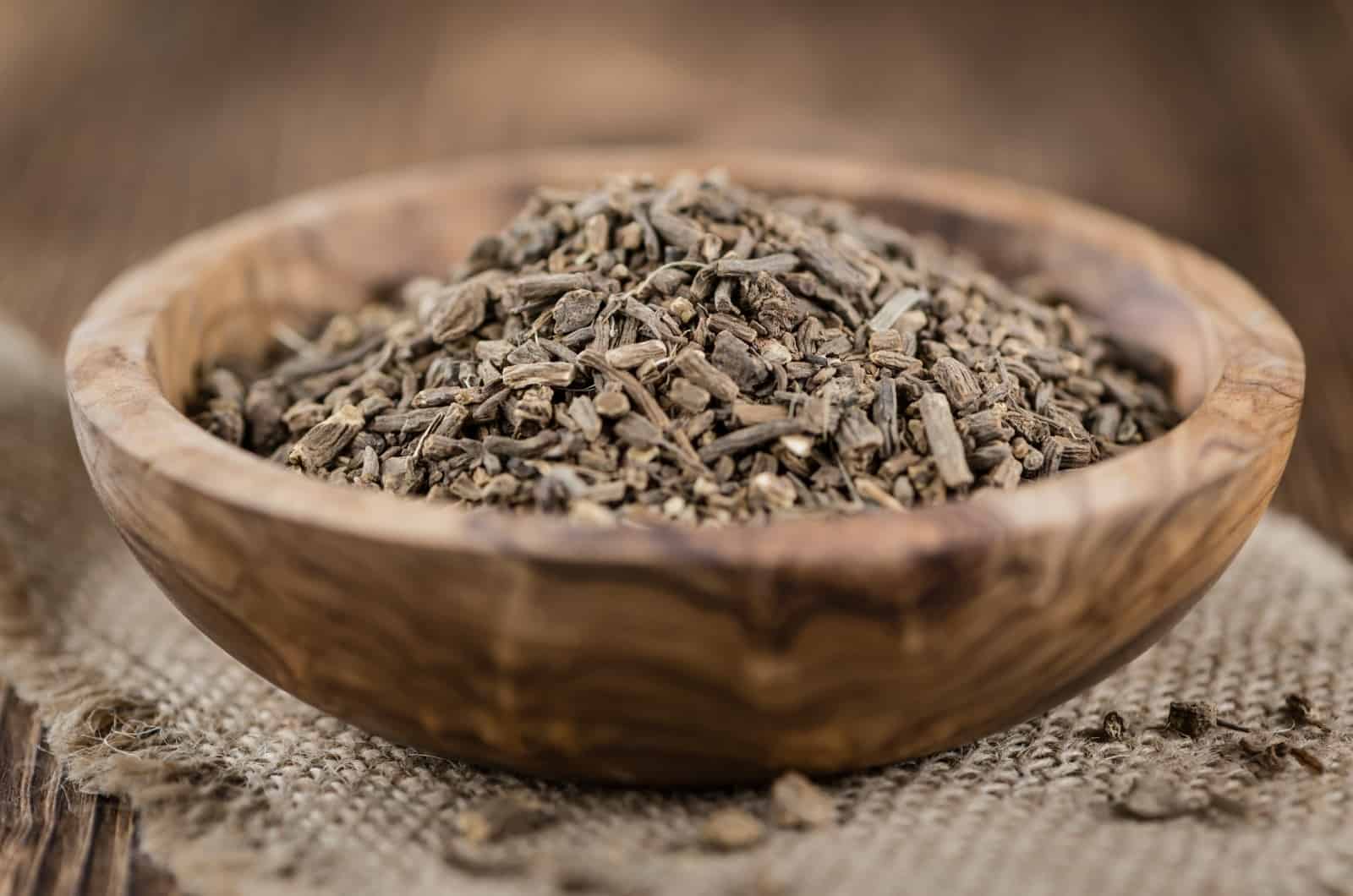
Now, let’s talk some more about a few scientific studies that show the effects valerian has on cats.
1. Responsiveness of cats (Felidae) to silver vine (Actinidia polygama), Tatarian honeysuckle (Lonicera tatarica), valerian (Valeriana officinalis) and catnip (Nepeta cataria)
A 2017 research article published in the BMC Veterinary Research is one of the most popular studies when it comes to the effect of valerian on cats.
This study is about investigating the effect of several different plants (catnip, silver vine, Tatarian honeysuckle, and valerian root) on 100 domestic cats.
When it came to valerian root, the cats were exposed to dried, cut valerian root.
The results of the study were that almost all cats involved in the study responded positively to olfactory enrichment by the herbs in the study, and that “Almost 80% of the domestic cats responded to silver vine and about 50% to Tatarian honeysuckle and valerian root.”
It was also noted that: “Significantly more cats responded to silver vine (79%) (P = 0.0001, Fisher’s exact test) or catnip (68%) (P = 0.04) than to Tatarian honeysuckle (53%) or valerian root (47%).”
The results of the study align with what many cat owners note, and that is that some cats do respond to valerian, while others do not, which is something I mentioned earlier in the article.
2. Consider Of Behavior Reaction In Cat By Contact With Valeriana Officinalis
This study examines the behavior of cats in response to valerian and the study was conducted on 50 cats.
The results showed that 24 out of 37 adult cats (65% percent) responded to valerian. This coincides with the results of the previously mentioned study and shows that not all cats respond to valerian.
An interesting result of the study is that adult cats are more likely to respond to valerian than kittens, which is something no other study has noted (as far as my research goes).
3. Behavioral Differences Among Domestic Cats In The Response To Cat-Attracting Plants And Their Volatile Compounds Reveal A Potential Distinct Mechanism Of Action For Actinidine
This study notes that apart from catnip, it was observed cats also respond to Tatarian honeysuckle, silver vine and Valeriana officinalis (valerian). The researchers aimed to see if cats’ response to these plants is “catnip-like”.
The results suggest that: “…while catnip might be the best-known cat attracting plant among cat caregivers outside of East Asia, the other plants seem to be at least as potent.”
Other findings were that the response duration and the intensity of the effect differ between cats. The researchers believe that: “These differences might in part be due to variation in olfactory perception and in part to differences in the cats’ personalities.”
What’s important for us regarding this study is that valerian has been proved to have an effect on cats!
How To Safely Give Valerian Root To A Cat
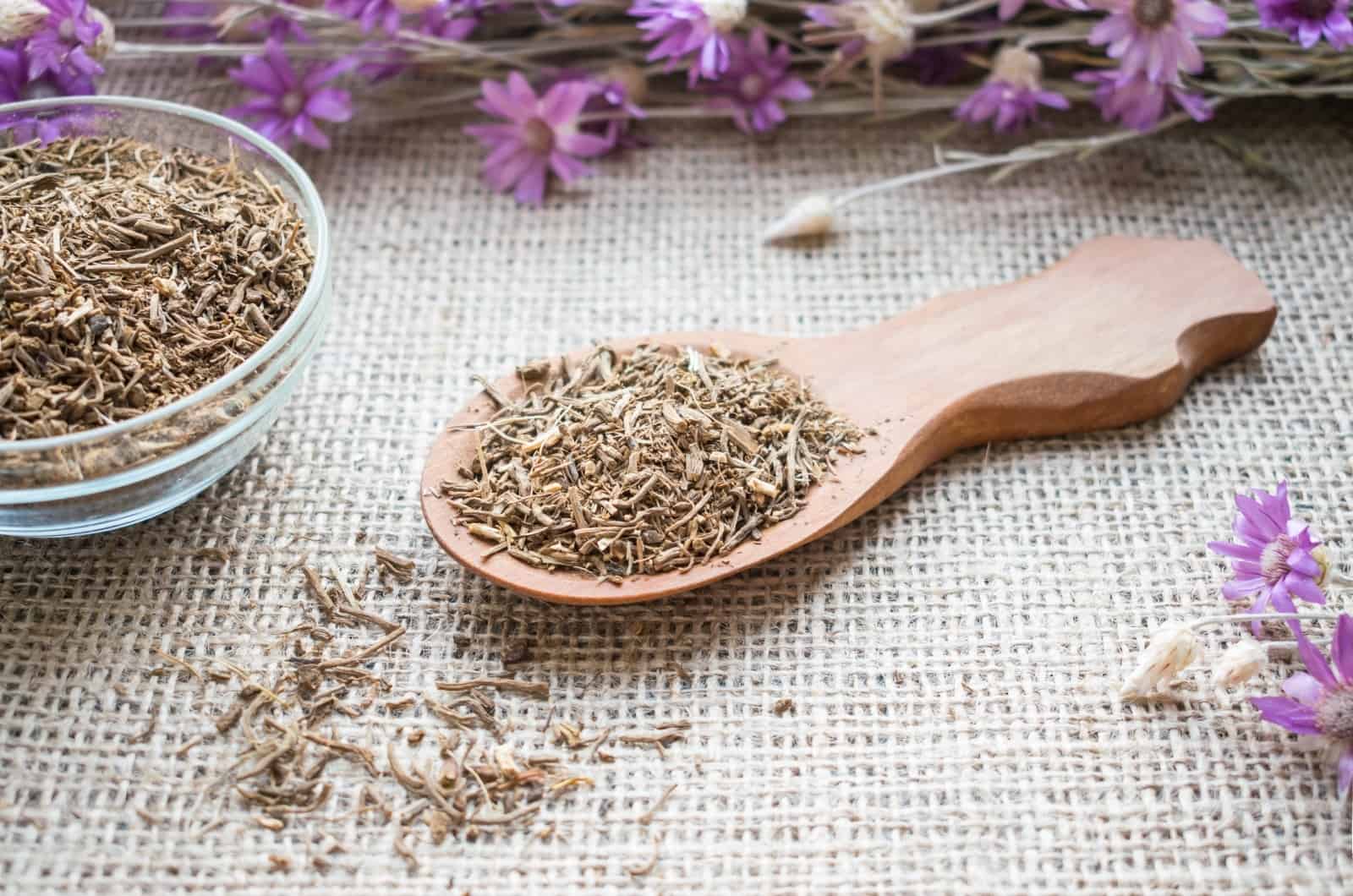
When it comes to giving your cat valerian root, I always recommend giving it olfactorily. That means you’ll allow your cat to smell the valerian root.
There are also valerian-infused cat treats, but in my experience, they’re not as effective.
Sprinkling some valerian onto a surface and allowing your cat to eat it might be a good option as well, but I prefer to stick with the cat smelling the herb, as there is always a tiny risk of valerian being a choking hazard when it’s being eaten.
So, how do I introduce valerian to my cat?
It’s important to use dried, organic valerian root roughly cut into little pieces. You can stuff the cut out pieces inside a cat’s toy or put it in a sock and allow the cat to sniff it.
Purchase some dried valerian root from your local health food store. Place the dried root into a sock and tie a knot at the top to keep the root in place.
You can then hang the sock in a spot accessible to your cat. The sock will release the calming scent of the valerian root, which cats find particularly calming.
However, some people dislike the smell of valerian root, and if you’re one of them, keep the sock away somewhere in between uses.
It’s important to note that you should never give your cat human valerian root supplements, pills, liquids, or essential oils, as they’re most likely too potent for a cat!
Possible Side Effects And Precautions
Although valerian is often seen as healthy for cats, there are certain adverse effects to take into account.
Rarely, valerian may result in nausea or diarrhea. Stop providing valerian if this happens, and get in touch with your veterinarian.
It’s crucial to keep an eye on your cat’s behavior after giving it valerian, as some cats might experience negative side effects, especially if they accidentally ingest a lot of valerian.
FAQ
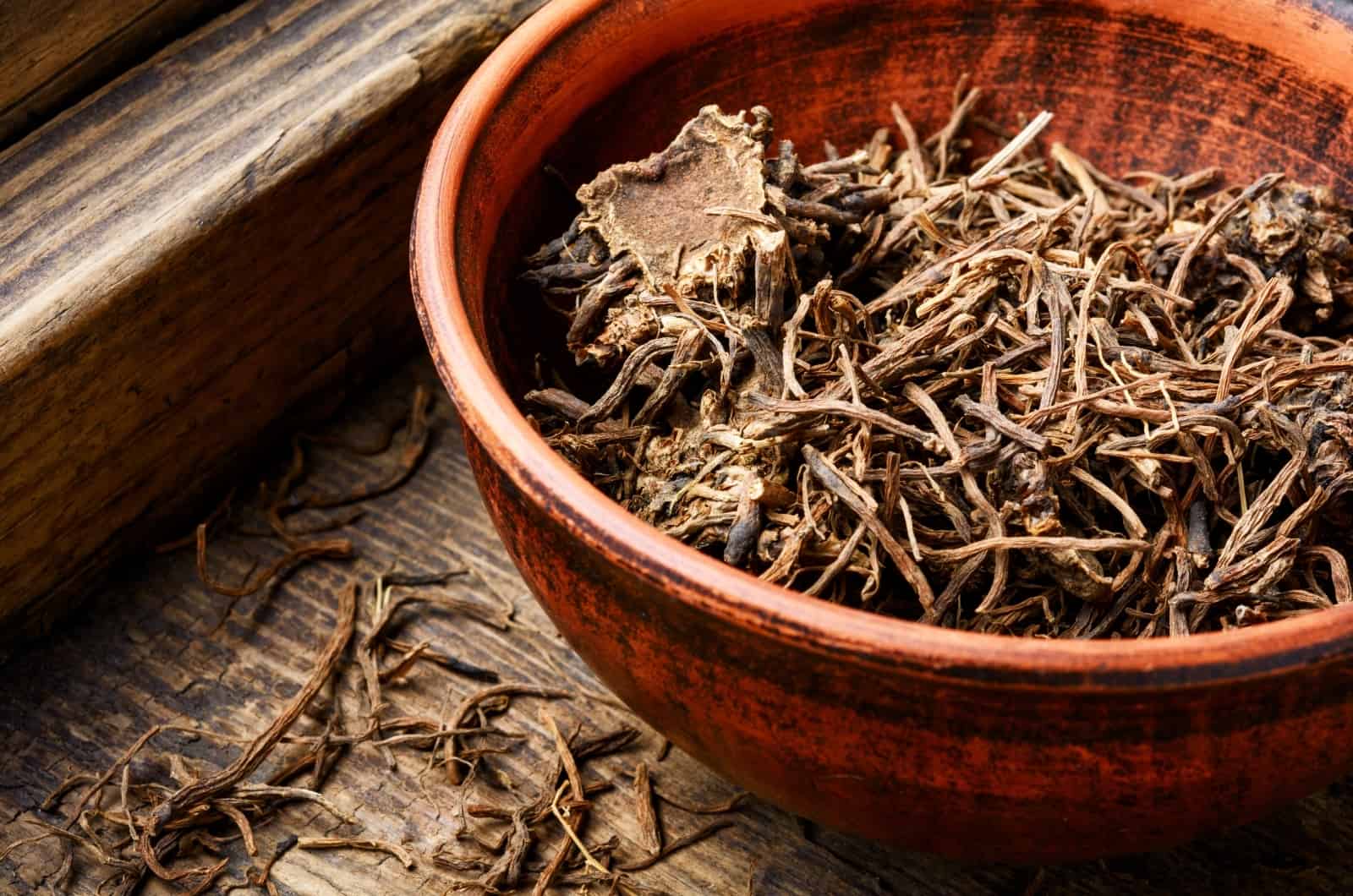
Is Valerian The Same As Catnip?
No, valerian is not the same as catnip, although many people confuse the two. Valerian is considered a catnip alternative, as it’s shown that it exerts a similar effect on cats as catnip does.
Does Valerian Sedate Cats?
It can be said that valerian has sedative effects.
Some studies have shown that valerian root may help reduce anxiety and promote a sense of well-being in cats, which could make it useful as a mild sedative.
What Is The Active Ingredient In Valerian Root?
The valerian has sedative properties due to the presence of valerenic acids, including monoterpenes and sesquiterpenes.
What Herb Calms Cats Down?
Valerian root is often used as a natural remedy to help reduce stress and anxiety in cats and to calm them down. Other herbs like catnip, chamomile, silver vine, lemongrass and passionflower are also known to have calming effects on cats.
Wrapping Up
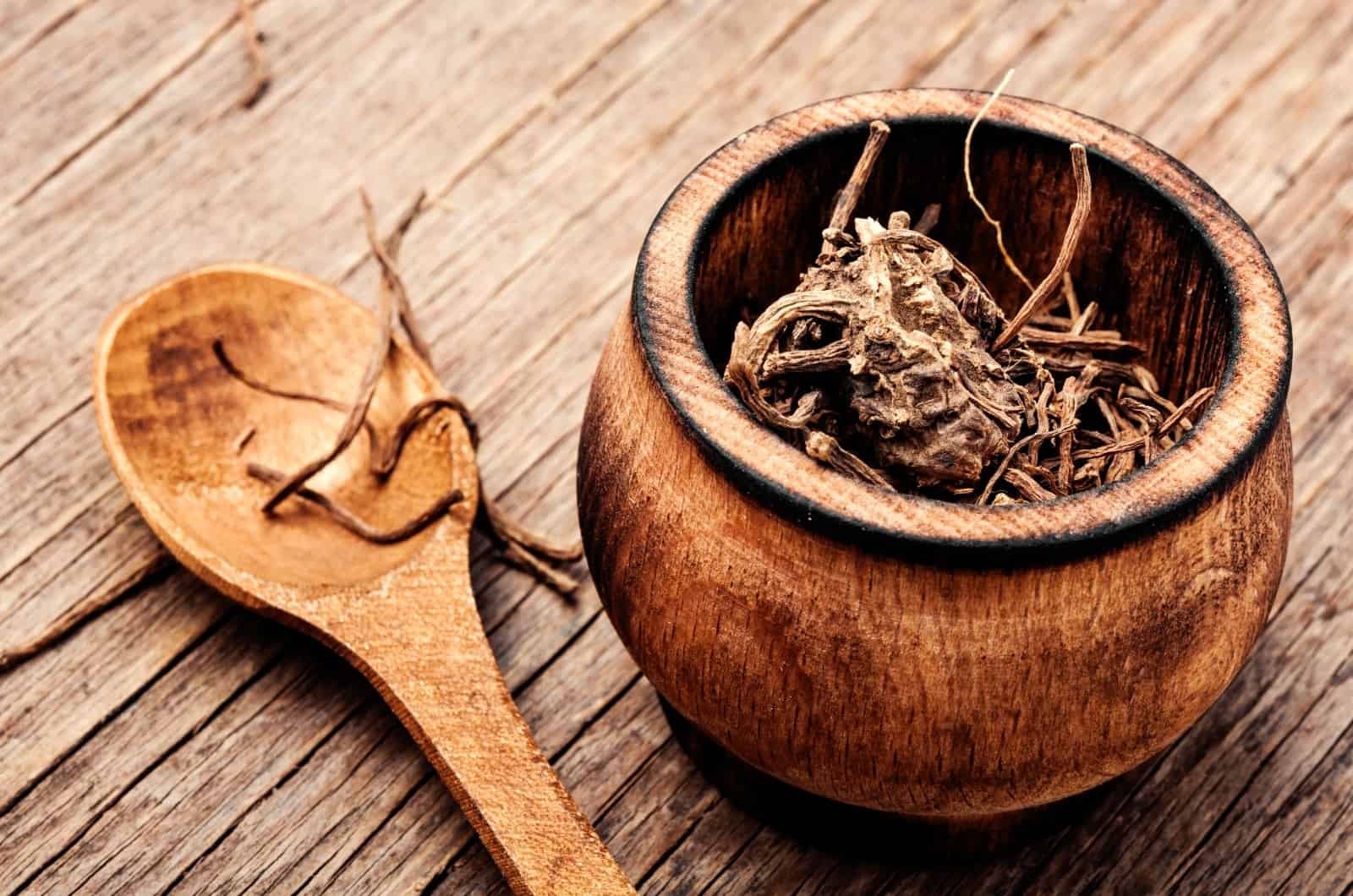
And there you have it folks – everything there is to know about the use of valerian root for cats.
Overall, valerian root can be a safe and effective natural way for cats to deal with stress and anxiety when used appropriately.
Cat lovers, it’s important to be aware of the signs of feline anxiety, and helping cats relax is essential for providing cats with a good quality of life!
However, note that valerian root should not be used as a sole treatment for anxiety and behavioral issues in cats, as some cats might need prescription medication for their issues.
If valerian root and similar herbs don’t seem to be helping, please see a vet. I’m sure you’ll be successful in helping your cat’s stress and anxiety symptoms go away!

